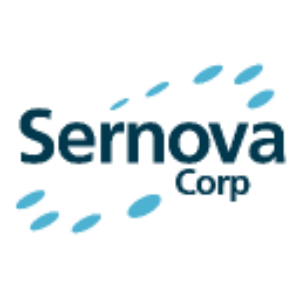Sernova Biotherapeutics Provides Positive Interim Data from Ongoing Phase 1/2 Clinical Trial of Cell Pouch Bio-hybrid Organ in Patients Living with Type 1 Diabetes
Rhea-AI Summary
Positive
- 8 out of 12 patients achieved insulin independence, demonstrating treatment efficacy
- 7 of 12 patients showed C-peptide levels ≥0.3 ng/mL, indicating successful islet cell function
- 9 of 12 patients achieved ADA recommended HbA1c levels <7.0%
- Study is on track to meet primary and secondary endpoints
- Planned advancement to iPSC islet-like clusters trials with Evotec in 2026
Negative
- 4 of 12 patients have not yet achieved insulin independence
- 3 patients did not reach the target HbA1c level of <7.0%
- Additional clinical trials and regulatory approvals still required before commercialization
News Market Reaction
On the day this news was published, SEOVF gained 6.44%, reflecting a notable positive market reaction.
Data tracked by StockTitan Argus on the day of publication.
Clinical Study on Track to Meet its Primary and Secondary Endpoints
Data Demonstrate That Metabolic Measures Improve with Cumulative Quantities of Transplanted Donor Islets
Data Demonstrate Islet Engraftment in Cell Pouch and Islet Functionality, Including C-Peptide Production
All Patients Reached or Maintained the ADA Recommended HbA1c of <
Patient Reported Data Show an Improved Awareness of Onset of Hypoglycemia, a Reduction of Fear of Hypoglycemic Events and a Reduction in Distress Associated with Managing Their Type 1 Diabetes
LONDON, Ontario and BOSTON, May 14, 2025 (GLOBE NEWSWIRE) -- Sernova Biotherapeutics, (TSX: SVA) (OTCQB: SEOVF) (FSE/XETRA: PSH), a leading regenerative medicine company focused on developing its Cell Pouch Bio-hybrid Organ as a functional cure for type 1 diabetes (T1D), today announced positive interim data from its ongoing Phase 1/2 clinical trial in patients with T1D.
Interim data from 12 patients with transplanted human donor islet cells in Cohort A and ongoing Cohort B show patients achieving insulin independence, islet cell engraftment in Cell Pouch, islet function, islet survival, improved glycemic control, improved patient reported quality of life (QOL) and improved awareness of hypoglycemia and increased sensitivity to severe hypoglycemic symptoms. Improvement in patient outcomes was correlated with a cumulative increase in the quantity of transplanted islets. Based on these findings, the study is on track to meet its primary and secondary endpoints, and the confirmatory Cohort C is expected to initiate in H2 2025.
Clinical trials with iPSC islet-like clusters from Sernova’s partner, Evotec, are anticipated to begin in 2026 after completion of Cohort C of the ongoing trial. These interim findings, with 8 of 12 patients achieving insulin independence so far, support the thesis that Sernova’s high volume ten channel Cell Pouch, used in Cohort B, plus an optimised immune suppression regimen, has the potential to achieve insulin independence, without portal vein transplant, in our planned clinical trial with Evotec’s high quality iPSC islet-like clusters.
C-peptide is a biomarker that measures the amount of insulin produced by the transplanted islets. For successful islet transplantation, a C-peptide level of 0.3 ng/mL (0.1 nmol/L) is generally considered a threshold for graft function. 7 of 12 patients showed C-peptide levels of 0.3 ng/mL or greater, indicating successful islet cell engraftment and insulin production by islets transplanted to the Cell Pouch alone. The interim data as analyzed using industry standard composite BETA and BETA-2 scores, as well as histology of explanted Cell Pouches provide further evidence of engraftment and function of islet cells after transplantation into the Cell Pouch alone.
Measured HbA1c (a blood test that shows the average blood sugar levels over the past 2-3 months) in patients with Cell Pouch alone, showed that 9 of 12 patients had a reduced value within the American Diabetes Association (ADA) recommended range of <
“I have been living with type 1 diabetes almost my entire life. This interim data showing successful functionality of our Cell Pouch Bio-hybrid Organ and improvement in patient reported Quality of Life inspires me and my Sernova colleagues to forge ahead to prevent the long-term comorbidities associated with T1D,” said Jonathan Rigby, CEO of Sernova. “The experience of hypoglycemia haunts people with T1D 24 hours a day, it is terrifying, it is debilitating. We won’t stop until we complete the development of a functional cure.”
Patients self-reported data on one industry standard survey that assesses hypoglycemia awareness and two industry standard Quality of Life surveys.
The Clarke Hypoglycemia Awareness Scale was used to assess study participants’ awareness of hypoglycemia, or low blood sugar, and data show that 11 of 12 patients reported improved awareness of hypoglycemia and increased sensitivity to severe hypoglycemic symptoms. The improved ability to recognize the warning signs of a low blood sugar episode is crucial for managing diabetes and preventing severe hypoglycemic episodes.
The Hypoglycemia Fear Survey-II (HFS-II) is a validated measure of fear of hypoglycemia in people living with diabetes. Lower scores reflect a decrease in worry and avoidance behaviors related to hypoglycemia, which have positive implications for diabetes management, including better adherence to treatment plans, improved glucose control and a reduction in avoidance behaviors that can negatively impact blood sugar levels. 10 of 12 patients reported a reduction in HFS-II scale indicating a reduction in fear of hypoglycemia.
The Diabetes Distress Score (DDS), a validated questionnaire designed to assess the emotional burden and distress associated with managing diabetes, was used to identify specific areas of concern. This includes emotional burden and regimen-related challenges to understand the psychological impact of living with T1D and any changes from baseline. Reduced diabetes distress can be associated with improved glycemic control, better self-care practices, and enhanced overall quality of life. 10 of 12 patients had a lowering of their DDS, indicating a reduction in distress associated with managing their T1D.
Dr. Robert Gabbay, former Chief Medical Officer of the American Diabetes Association and advisor to Sernova said, “These data are positive and indicate that a threshold cumulative quantity of implanted islets can be reached to show clinical effect. I look forward to Sernova entering the clinic with Evotec’s abundant supply of iPSC islet-like clusters which are consistently high quality compared to human donor islets. I have spent my career caring for persons living with T1D and believe that the Cell Pouch Bio-hybrid Organ has the potential to be a functional cure for T1D.”
ABOUT SERNOVA BIOTHERAPEUTICS
Sernova Biotherapeutics is a clinical-stage company developing regenerative medicine therapeutics combining its Cell Pouch with human donor cells or stem-cell derived islet-like clusters in collaboration with Evotec to create bio-hybrid organs to treat T1D. A bio-hybrid organ is comprised of non-biomaterials, such as the Cell Pouch, integrated with living tissues to restore or enhance the function of a compromised organ. This innovative approach aims to deliver a potentially revolutionary treatment for patients with chronic diseases, initially focusing on T1D and thyroid disorders.
FOR FURTHER INFORMATION, PLEASE CONTACT:
David Burke VP, Investor Relations (917) 751-5713 Email: David.Burke@sernova.com Website: https://sernova.com/
The TSX has not reviewed this news release and does not accept responsibility for the accuracy or adequacy of this news release.
FORWARD-LOOKING INFORMATION
This press release contains forward-looking statements within the meaning of applicable Canadian securities laws. Forward-looking statements in this press release include our belief that the Cell Pouch Bio-hybrid Organ has demonstrated beta cell engraftment, function and patient benefit; that patient outcomes improvement correlates with cumulative islet cell implantation via Cell Pouch and the portal vein; our expectation that the trial is on track to achieve its primary and secondary endpoints; and our expectations on the timing of the initiation of Cohort C and the iPSC clinical trial. With respect to the forward-looking statements contained in this press release, Sernova has made numerous assumptions regarding, among other things: the company’s ability to secure additional financing on reasonable terms, or at all; and the ability to conduct all required preclinical and clinical studies for the company’s Cell Pouch, including the timing and results of those trials. A more complete discussion of the risks and uncertainties facing Sernova appears in Sernova’s Annual Information Form for the year ended October 31, 2024, filed with Canadian securities authorities and available at www.sedarplus.ca, as updated by Sernova’s continuous disclosure filings, which are available at www.sedarplus.ca. All forward-looking statements herein are qualified in their entirety by this cautionary statement, and Sernova disclaims any obligation to revise or update any such forward-looking statements or to publicly announce the result of any revisions to any of the forward-looking statements contained herein to reflect future results, events or developments, except as required by law.









